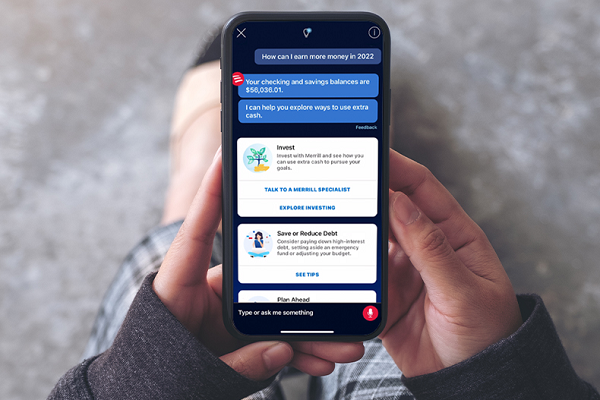Revolutionizing customer service: the role of AI in automating customer support
The world of customer service is constantly changing, and one of the most significant changes in recent years has been the introduction and growth of Artificial Intelligence (AI). AI is quickly becoming a cornerstone in how businesses interact with and support their customers. It’s transforming customer service from the traditional, sometimes time-consuming process into an efficient, streamlined, and more personalized experience.
When we think about AI in customer service, we often picture chatbots. But it’s much more than that. AI now plays a crucial role in understanding customer needs, automating responses, and providing support around the clock. This technology has moved from its early days of basic automated replies to now being able to engage in meaningful, context-driven conversations with customers.
This article will explore how AI is changing the customer service landscape. We’re not just talking about quicker responses, but how AI is making customer interactions smarter, more efficient, and increasingly tailored to individual needs. For businesses, this means not only enhanced customer satisfaction but also a more insightful and effective approach to customer service. Let’s dive into how AI is making this possible and why it’s a game-changer in the customer support world.
THE EVOLUTION OF CUSTOMER SERVICE
The journey from past to present
Customer service, as we know it today, has come a long way from its early beginnings. Traditionally, customer service was a direct, personal interaction between consumers and businesses – whether face-to-face, through mail, or over the phone. The focus was primarily on resolving issues post-purchase. As markets expanded and technology advanced, the demand for more efficient, accessible customer service grew.
The advent of the internet and digital communication brought about a significant shift. Businesses started leveraging emails, live chat, and social media to interact with customers. This era saw a transition from reactive to proactive customer service, where businesses not only responded to issues but also began engaging with customers to understand and meet their needs better.
Introduction to AI in customer service
Enter Artificial Intelligence (AI) – a technology that promised to further transform customer service. AI’s initial foray into customer service was through simple automated systems designed to handle basic tasks like answering frequently asked questions or routing calls. These systems were basic but revolutionary, laying the groundwork for what was to come.
The early applications of AI in customer service were focused on efficiency – reducing wait times and handling simple, repetitive queries. However, as AI technology evolved, so did its capabilities. AI systems began to learn from interactions, improving their responses and becoming more adept at handling complex queries. This evolution marked the transition from basic automation to intelligent interaction.
AI in customer service is now at a point where it’s not just about answering questions but about providing a seamless, personalized customer experience. From chatbots that can handle a wide range of queries to AI systems that analyze customer data to provide personalized recommendations, AI has become a key player in modern customer service strategies.

UNDERSTANDING AI IN CUSTOMER SERVICE
Unraveling AI and its companions
At its core, Artificial Intelligence (AI) refers to computer systems or machines that mimic human intelligence to perform tasks and can iteratively improve themselves based on the information they collect. AI in customer service utilizes two key technologies: Machine Learning (ML) and Natural Language Processing (NLP).
- Machine Learning: ML is a subset of AI that enables systems to learn from data, identify patterns, and make decisions with minimal human intervention. In customer service, ML can analyze vast amounts of customer interaction data to identify trends, predict customer needs, and personalize responses.
- Natural Language Processing: NLP allows machines to understand and interpret human language. In customer service, NLP is crucial for chatbots and virtual assistants to comprehend customer queries and respond in a way that mimics human conversation.
AI applications in Customer Service
AI has found several impactful applications in customer service, each enhancing the customer experience in unique ways:
- Chatbots and Virtual Assistants
- Example: A retail company uses a chatbot on its website to assist customers in finding products, answering FAQs, and even resolving basic issues like order tracking. The chatbot uses NLP to understand customer queries and ML to provide accurate, relevant responses.
- AI-powered CRM Systems
- Example: Salesforce Einstein, an AI feature within Salesforce CRM, analyzes customer data to predict their future behavior, recommend next steps for service agents, and automate routine tasks. This helps businesses personalize their interactions and proactively address potential issues.
- Sentiment analysis
- Example: A social media management tool uses sentiment analysis to monitor and analyze customer feedback across social platforms. This helps companies gauge public sentiment about their brand and quickly address any negative trends.
- Automated Customer Support tickets
- Example: Zendesk uses AI to automatically categorize, route, and prioritize customer support tickets. This streamlines the workflow, ensuring that urgent and relevant tickets are addressed promptly.
- Personalized recommendations
- Example: Netflix uses AI algorithms to analyze viewing patterns and provide personalized show and movie recommendations, enhancing user experience and engagement.
- Voice recognition and Interactive Voice Response (IVR) systems
- Example: An advanced IVR system in a banking customer service center uses voice recognition to identify and authenticate customers, and then routes them to the appropriate department based on their spoken requests.

BENEFITS OF AI IN CUSTOMER SERVICE
The integration of Artificial Intelligence (AI) in customer service has brought about a transformation marked by efficiency, personalization, and insightful data analysis. Here’s a closer look at these benefits:
Efficiency and 24/7 availability
- Round-the-Clock Service: One of the most significant advantages of AI in customer service is its ability to offer consistent support without breaks or downtime. Chatbots and AI-driven support systems can handle customer queries 24/7, ensuring that customers receive timely assistance regardless of time zones or holidays.
- Speed of Response: AI systems can provide immediate responses to customer queries. Unlike human agents who can handle one customer at a time, AI systems can engage with multiple customers simultaneously, significantly reducing wait times and improving overall efficiency.
Personalized customer experiences
- Customized interactions: AI technologies, particularly those leveraging Machine Learning, can analyze past interactions and preferences to tailor the customer experience. For instance, an AI system can suggest products or services based on a customer’s browsing history or previous purchases, creating a more personalized shopping experience.
- Context-aware responses: With the help of Natural Language Processing, AI chatbots can understand the context of customer queries, leading to more accurate and relevant responses. This ability to interpret and respond appropriately adds a level of personalization that closely mirrors human interaction.
Scalability in handling customer queries
- Adapting to demand: AI systems can easily scale up or down to handle varying volumes of customer queries. During peak times, such as holiday seasons, AI can manage the increased load without the need for additional human staff, ensuring consistent quality of service.
- Diverse query management: AI can handle a range of customer service tasks, from simple FAQ responses to more complex queries. This versatility allows businesses to allocate human resources to more nuanced and complex customer service tasks, optimizing overall workforce efficiency.
Data analysis and insights for better service
- Actionable insights: AI systems can process and analyze vast amounts of customer data, providing businesses with insights into customer behavior, preferences, and satisfaction. This data is invaluable for making informed decisions about product development, marketing strategies, and customer service improvements.
- Predictive analysis: AI can predict trends and customer needs before they become apparent. For example, AI can analyze customer feedback to identify potential areas of improvement or anticipate future support needs, allowing businesses to proactively address issues.
The incorporation of AI in customer service is more than just a technological upgrade; it’s a strategic move towards more efficient, personalized, and insightful customer interactions. As AI continues to evolve, its role in shaping the future of customer service becomes increasingly integral, offering businesses a powerful tool to enhance customer satisfaction and loyalty.
AI IN ACTION: SUCCESS STORIES FROM THE FRONTLINES OF CUSTOMER SERVICE
The practical implementation of AI in customer service can be best understood through real-world examples. Here, we explore how various companies across different industries have successfully integrated AI into their customer service strategies, highlighting the impact and outcomes.
Amazon’s use of AI for Customer Service
- Overview: Amazon, a global e-commerce giant, utilizes AI in various forms to enhance customer experience. Its AI-powered chatbot, integrated with its website and app, assists in resolving customer queries, tracking orders, and recommending products based on customer preferences.
- Impact: This implementation has led to faster resolution times, personalized shopping experiences, and increased customer satisfaction.

Bank of America’s Virtual assistant, Erica
- Overview: Bank of America introduced Erica, an AI-driven virtual assistant that provides financial guidance and support to its customers. Erica assists users with transaction history, bill payments, and even provides credit report updates.
- Impact: Erica has significantly improved customer engagement, offering a convenient and personalized banking experience, and has handled millions of customer requests effectively.
Spotify’s AI-driven music recommendations
- Overview: Spotify uses AI to analyze user listening habits and preferences. This data drives its recommendation engine, offering personalized playlists and music suggestions, enhancing the overall user experience.
- Impact: Spotify’s AI implementation has been crucial in user retention and satisfaction, as it provides a highly tailored listening experience.

Sephora’s virtual artist
- Overview: Sephora’s Virtual Artist uses AI and AR (Augmented Reality) to allow customers to try on makeup virtually. This tool helps customers make purchase decisions by showing them how products would look on their own faces.
- Impact: This innovative use of AI has elevated the online shopping experience, leading to higher engagement rates and increased sales.

Zara’s Chatbot for customer queries
- Overview: Fashion retailer Zara employs a chatbot on its website to assist customers with product inquiries, stock checks, and order tracking, making the shopping experience smoother and more efficient.
- Impact: The chatbot has enhanced customer service efficiency and improved the overall online shopping experience for Zara’s customers.

Domino’s AI-powered order taking
- Overview: Domino’s introduced an AI system, DOM, for taking orders via phone. DOM can understand customer orders and preferences, reducing human error and streamlining the order-taking process.
- Impact: This has led to quicker order processing, fewer errors, and an improved ordering experience for customers.
Each of these examples showcases how AI can be tailored to fit different business models and customer service needs. From improving operational efficiency to personalizing the customer experience, these case studies demonstrate the versatile and transformative nature of AI in customer service.
BRIDGING THE GAP: HUMAN TOUCH IN THE AGE OF AI CUSTOMER SERVICE
While AI has significantly transformed customer service, it’s important to recognize its limitations and the ethical considerations involved. Here, we delve into some of the key challenges and considerations surrounding the use of AI in customer service.
Understanding complex human emotions and nuances
- Limitations in emotional intelligence: AI, despite its advanced algorithms, still struggles to fully understand and interpret complex human emotions and nuances. While AI can efficiently handle straightforward queries, it often falls short in situations requiring empathy, emotional understanding, or interpretation of ambiguous language.
- Impact on customer experience: This limitation can lead to unsatisfactory experiences for customers who seek a more empathetic and nuanced response, especially in sensitive or complex situations.
Ethical considerations and privacy concerns
- Data handling and privacy: AI systems often require access to vast amounts of customer data to function effectively. Ensuring the ethical handling of this data and maintaining customer privacy is paramount. Mismanagement of data can lead to privacy breaches and a loss of customer trust.
- Bias in AI systems: Another ethical concern is the potential for inherent biases in AI systems, which can arise from biased training data. This can lead to unfair or discriminatory outcomes in customer service interactions.
The importance of human-AI collaboration
The most effective approach to AI-driven customer service is one that combines the efficiency and scalability of AI with the empathy and problem-solving abilities of human agents. This hybrid model ensures that while AI handles routine queries, complex and sensitive issues are escalated to human agents.
Continuous training and oversight are necessary to ensure that AI systems function as intended and are used ethically. Human agents play a crucial role in training AI systems, providing feedback, and stepping in where AI falls short.
Navigating the challenges
- Developing emotionally intelligent AI: Ongoing research and development in AI aim to enhance its emotional intelligence, enabling more nuanced interactions.
- Implementing robust privacy policies: Companies must implement robust data privacy policies and use AI responsibly to maintain customer trust.
- Regular audits for bias and functionality: Regular audits of AI systems are essential to identify and mitigate any biases and ensure they function effectively and ethically.
Understanding these challenges and considerations is crucial for businesses to responsibly leverage AI in customer service. While AI offers numerous benefits, balancing its use with ethical practices and human oversight will define the success of customer service strategies in the digital age.

TOMORROW’S SERVICE TODAY: THE FUTURE LANDSCAPE OF AI IN CUSTOMER SUPPORT
As we gaze into the horizon of customer service, Artificial Intelligence (AI) stands as a beacon of transformation and innovation. What are the predictions and trends for AI in customer service?
- Advanced personalization: AI is expected to move beyond basic data analysis to offer deeply personalized customer experiences. Imagine AI systems that not only recommend products based on past purchases but also consider real-time mood and behavior, providing a level of customization previously unattainable.
- Emotionally intelligent Bots: The future will see the emergence of AI systems with enhanced emotional intelligence, capable of detecting subtle cues in customer tone and language. This advancement will allow for more empathetic and contextually aware interactions, bridging the gap between digital efficiency and human warmth.
- Voice-activated assistants: Voice technology is set to become more prevalent, with AI assistants becoming increasingly sophisticated. They will be capable of conducting more complex conversations, understanding different accents and dialects more accurately, and providing assistance that feels more natural and intuitive.
The impact of emerging AI technologies
- Seamless omnichannel experience: AI will drive a seamless integration of various channels (phone, chat, email, social media), providing a cohesive and uninterrupted customer journey. Customers will be able to switch between channels without repeating their issues, as AI keeps track of the entire conversation history across platforms.
- Proactive customer service: AI’s predictive capabilities will evolve to anticipate customer needs and issues before they even arise. For instance, AI might alert a customer to a potential problem with a product and offer a solution proactively, transforming the customer service paradigm from reactive to proactive.
- Enhanced decision making: With AI’s ability to analyze vast quantities of data, businesses will gain deeper insights into customer behavior and preferences. This will aid in making data-driven decisions, tailoring services to meet customer demands more accurately, and identifying new opportunities for growth.
- Ethical AI governance: As AI becomes more embedded in customer service, the focus on ethical AI governance will intensify. This will involve developing standards and frameworks to ensure AI is used responsibly, respecting customer privacy, and avoiding biases.
The future of AI in customer service is not just about technological advancement but about reshaping the very essence of customer interactions. It promises a world where customer service is more intuitive, empathetic, and anticipatory, offering experiences that are genuinely in tune with customer needs. As we embrace these innovations, the line between digital efficiency and the human touch in customer service will become increasingly blurred, setting the stage for an exciting new chapter in customer experience.
EMBRACING AI FOR A CUSTOMER-CENTRIC FUTURE
As we conclude our exploration into the dynamic world of AI in customer service, it’s clear that this technology is not just a fleeting trend but a fundamental shift in how businesses interact with their customers. AI is rapidly becoming an indispensable tool, offering efficiency, personalization, and insights that were once unattainable. From enhancing customer experiences to revolutionizing service models, AI’s role in shaping the future of customer service is undeniable.
The journey through the various facets of AI in customer service – from its current applications and benefits to the ethical considerations and its promising future – underscores the importance of embracing this technology. AI is not just about automating tasks; it’s about augmenting the human experience, making every customer interaction more meaningful, responsive, and personalized.
Are you ready to harness the power of AI in your customer service operations? At Zeren, we specialize in integrating cutting-edge AI solutions that are tailored to your unique business needs. Our expertise in AI-driven strategies ensures that your customer service is not only efficient but also genuinely customer-centric. Contact us now, and let’s build a customer service experience that’s ready for the future.










